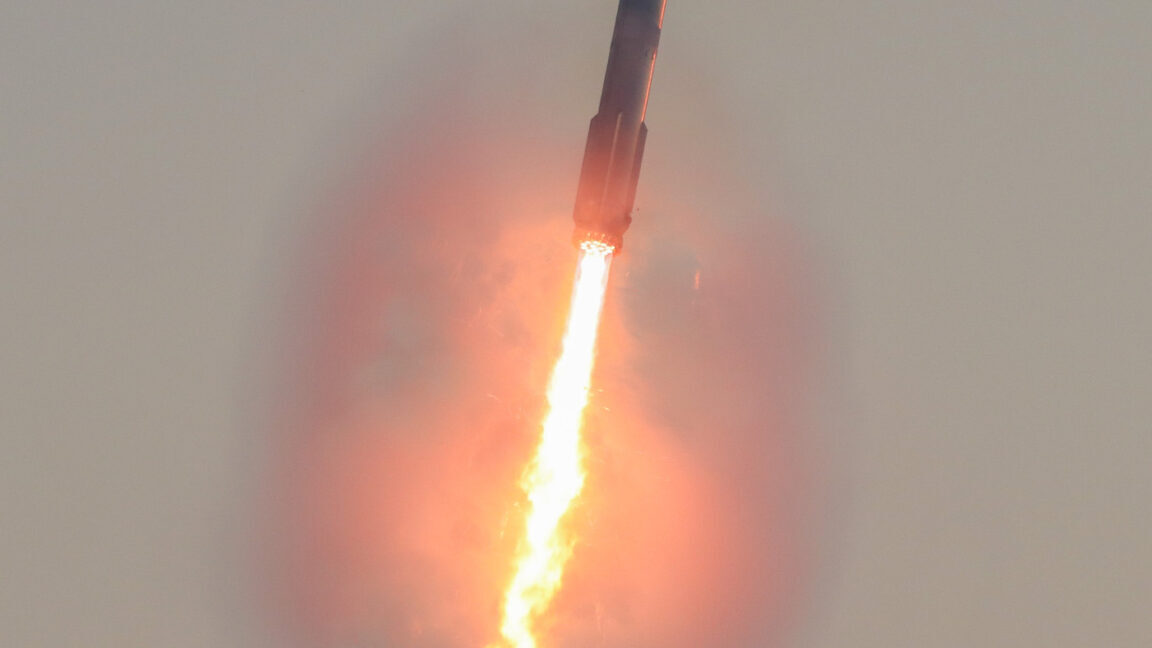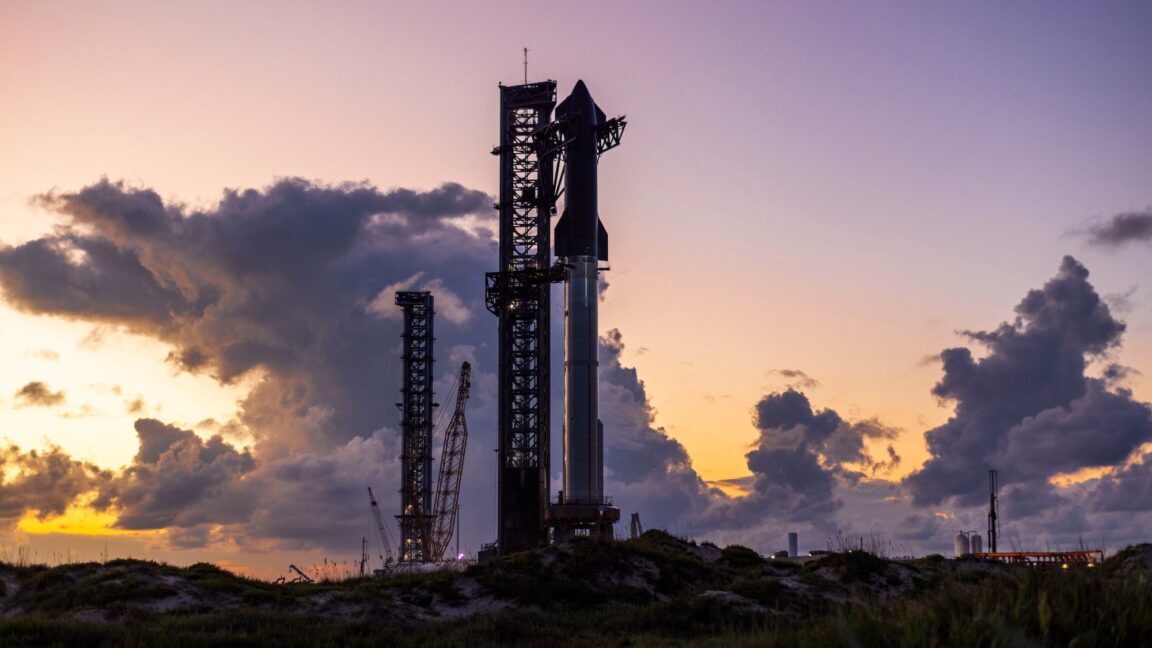- 232 Posts
- 70 Comments

 3·26 days ago
3·26 days agoI keep thinking that it must have been half a meter and there was a mistake somewhere, but that’s what the source tells us! Insane.

 3·30 days ago
3·30 days agoThat’s so cool!!

 4·1 month ago
4·1 month agoFirst crew dragon launch from SLC40!

 6·3 months ago
6·3 months agoI LOVE that already there are enough commercial space missions happening that it’s easy to get confused which one is which! The more the merrier imo :)

 5·3 months ago
5·3 months agoThanks for sharing the video! I’m always interested in seeing mainstream coverage of this stuff. However, they really don’t know what they’re talking about. For example, the host says they’re going to higher altitudes than the Apollo program, which is just utterly baloney. Really throws a wrench into the credibility of this news outlet, in my view at least.
As for whether this mission is risky, yes it absolutely is. However, all manned space missions are risky and this one doesn’t really have anything that makes it fundamentally unsafe.
Look, NASA sets objectives to accomplish its missions to the ISS, and they work with the engineers at SpaceX to figure out how to accomplish them as safely as possible. These Polaris missions are fascinating in that the objectives are set jointly between the SpaceX team and a paying customer.
The customer is interested in a few things, but it probably comes down to fame for doing new things. SpaceX is interested in developing the technologies and raising funds to get to Mars. Where their goals overlap is how we get the Polaris missions. I think that’s pretty cool!

 6·3 months ago
6·3 months agoWhile the Korea Aerospace Research Institute (KARI) is responsible for developing the satellite bus, Korea’s Electronics and Telecommunications Research Institute (ETRI) is in charge of the payloads.
SpaceX is just launching the satellites.

 3·3 months ago
3·3 months agoThink a booster will complete 25 flights by the end of the year? I think so. We’re close!

 2·3 months ago
2·3 months agoPersonally, I think it’s a great thing that the US arguably has the best military surveillance and communication satellites. Certainly I prefer money going there than into literal bullets. In any case, doesn’t this have nothing to do with space tourism?

 3·3 months ago
3·3 months agoInstant upvote. Well played, my friend, well played.

 3·3 months ago
3·3 months agoMy dear friend, the report is factually false. I can’t speak for others, but I personally find it to only be responsible to help dispel false news. And for what it’s worth, Elon is an asshole in my view, but that is irrelevant in this context, wouldn’t you agree?
As for the facts, you may check them yourself. Here is the actual application. Typo is on page 79, the actual figure is in the appendix on page 177.
Maybe you’re wondering why I am keen on sharing all this. I am a big fan of spaceflight, it’s just something I like and find inspiring. False reports that lean heavily on “Elon Musk bad” make the spacefaring future I’m rooting for more difficult to achieve. Surely it’s ok to correct misinformation?

 2·3 months ago
2·3 months agoI agree completely! Life is so cool. I would also say that we are a very, very long way from sending tons of dirt to Mars, but current probes are essentially sterilized, which adds billions to their cost, and for what?

 31·3 months ago
31·3 months agoHere is the actual application. Typo is on page 79, the actual figure is in the appendix on page 177.

 11·3 months ago
11·3 months agohttps://x.com/SpaceX/status/1823378186836889699
CNBC updated its story yesterday with additional factually inaccurate information.
While there may be a typo in one table of the initial TCEQ’s public version of the permit application, the rest of the application and the lab reports clearly states that levels of Mercury found in non-stormwater discharge associated with the water deluge system are well below state and federal water quality criteria (of no higher than 2.1 micrograms per liter for acute aquatic toxicity), and are, in most instances, non-detectable.
The initial application was updated within 30 days to correct the typo and TCEQ is updating the application to reflect the correction.

 31·3 months ago
31·3 months agoPlanetary Protection is one of my absolute FAVORITE can of worms!! Obviously it is a good idea to be careful and mindful, but I personally believe that NASA’s current policies are complete overkill.
Let’s think this through. Why don’t we want to bring earth life to another world?
Maybe because then we won’t be able to tell whether it is indigenous or not? Baloney! Imagine you accidentally bring a lizard to an island that doesn’t have them. If it is indigenous, there would be evidence of them being there in the past, through fossils or otherwise!
Maybe we don’t want to infect any life that is on that other planet, that earth life could take over that ecosystem like an invasive species? Astronomically unlikely. All earth life is evolved to live in its specific environment and to interact with the species with which it has evolved alongside. As such, totally unrelated organisms form different planets would be so completely alien to each other that they would be unlikely to interact to begin with. Additionally Mars, for example, definitively has no macro-fauna or flora. As such, any possible microbes on Mars would be completely at a loss on how to interact with humans or indeed any earth life.
Finally, Earth and Mars, for example, exchange ~500 kilograms of material every year. Analysis shows that some of that material never exceeded a temperature high enough for sterilization. Thus, if there was any life on mars, it would have reached us by now, living in our biosphere along with us.
Anyways I’m a big nerd and I hope this stuff is interesting!

 31·3 months ago
31·3 months agoRemoved by mod

 22·3 months ago
22·3 months agoRemoved by mod

 52·3 months ago
52·3 months agoRemoved by mod

 32·3 months ago
32·3 months agoIf a rocket gets to orbit, it most certainly hasn’t blown up ;) Furthermore if it is reusable (which only SpaceX has) then it doesn’t even crash into the ocean.
Let’s be very clear on what rockets generally do. Last year, there were just over 200 launches worldwide (a world record, btw). ~10 of these sent professional astronauts to space stations. The rest deployed satellites that do all sorts of amazing things, including astronomy research, weather and earth observation, and communications. If 1 or 2 are a tourist flight, what’s the big deal?




Works on Boost for Android!